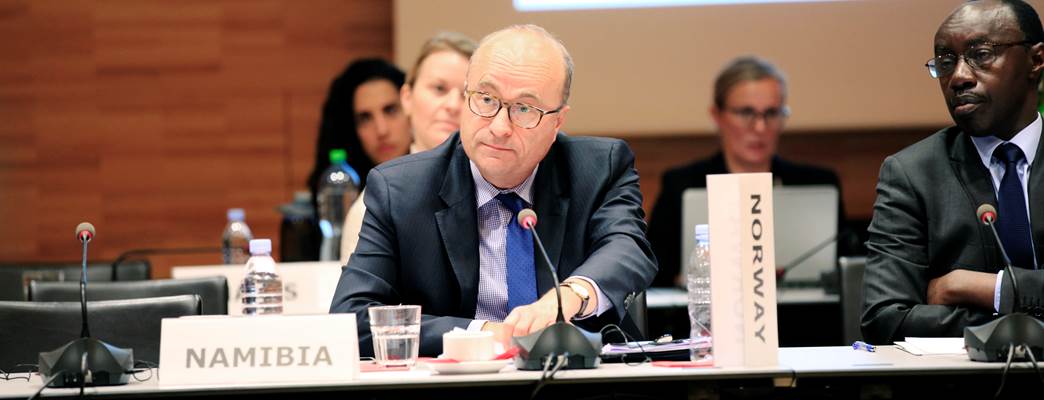Norway’s message focused on continued UN reform, health systems strengthening, the common responsibility to ensure the health of victims of crises, upholding sexual and reproductive health and rights, as well as the need for strategic support for universal health coverage. “Rather than delivering health care services, the international community must re-orient towards policy support; longer-term financing with an emphasis on domestic resource mobilization and priority setting; and ensuring availability of affordable and effective medicines and diagnostics”, said Ambassador Brattskar.
The meeting was chaired by the Swiss representative to the United Nations, Ambassador Valentin Zellweger. Deputy Secretary-General of the United Nations Ms Amina Mohammed, Director-General of the World Health Organization Dr Tedros Adhanom and Executive Director of UNAIDS Mr Michel Sidibé gave opening remarks.
Amina Mohammed underlined that “the Secretary-General and I place great emphasis on prevention. Investing in prevention to keep people healthy will bring the largest dividend. To do that means addressing social determinants with a myriad of stakeholders in politics, education, trade, civil society, the investor community and beyond.”
WHO’s DG Tedros made the case that achieving the Sustainable Development Goals (SDGs) is about speed, scale and quality. “Are we moving fast enough; are our efforts and investments ambitious enough; and are we delivering quality health services for all? But above all, Agenda 2030 is a political document. Universal health coverage is a political choice. As technical agencies, we must strengthen our ability to play political roles.”
“Health can be a major entry point for implementing UN reform by simplifying and streamlining the health architecture through one inclusive country platform, one implementation plan, and one data hub for planning, monitoring and accountability. This will help the UN system to be more focused, more aligned and more effective in its support to countries.” added Executive Director Sidibé.
Participants highlighted the success of the Millennium Development Goals (MDGs) in the targeted efforts to fight communicable diseases and improve maternal and child health. Despite the great achievements, there is still an unfinished agenda related to the MDGs.
At the same time, it was acknowledged that the Agenda 2030 and the Sustainable Development Goals require a more integrated and cross-sectoral way of working. This is in particular the case when facing new health challenges, such as non-communicable diseases (NCDs). These are now a major component of the global burden of disease and cannot be handled by the health sector alone. Factors such as environment and pollution must also be addressed, along with food and beverage production and consumption. The need to link human rights and health in order to reach the most vulnerable and marginalized was also expressed.
Several participants also noted the importance of the ongoing reform efforts to enable the United Nations to work more efficiently at country level as One UN. This was an important point in Ambassador Brattskar’s statement, which also highlighted health systems strengthening, a common responsibility to ensure the health of victims of crises, strategic support for Universal Health Coverage and upholding sexual and reproductive health and rights (SRHR).
